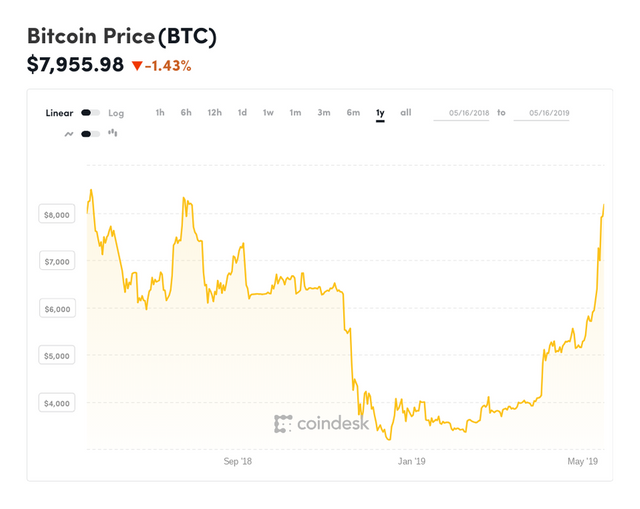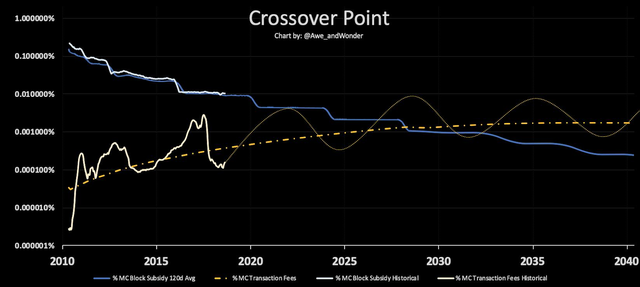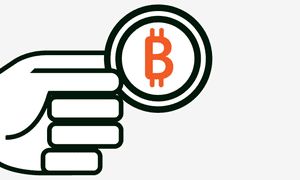The Bank of Britain's ongoing report on installment advances and computerized monetary forms respected the blockchain innovation that empowers advanced monetary forms a 'veritable mechanical development' which could have expansive ramifications for the budgetary business. 
So what is the square chain and for what reason are you all getting energized?
The square chain is an online decentralized open record of every single computerized exchange that have occurred. It is computerized cash's likeness a high road bank's record that records exchanges between two gatherings.
Similarly as our advanced financial framework couldn't work without the way to record the trades of fiat money between people, so too could a computerized system not work without the trust that originates from the capacity to precisely record the trading of computerized cash between gatherings.
It is decentralized as in, dissimilar to a customary bank which is the sole holder of an electronic ace record of its record holder's investment funds the square chain record is shared among all individuals from the system and isn't dependent upon the terms and states of a specific money related organization or nation.

What of it? For what reason is this desirable over our present financial framework?
A decentralized money related system guarantees that, by sitting outside of the evermore associated current monetary foundation one can alleviate the dangers of being a piece of it when things turn out badly. The 3 primary dangers of a unified money related framework that were featured because of the 2008 budgetary emergency are credit, liquidity and operational disappointment. In the only us since 2008 there have been 504 bank disappointments because of indebtedness, there being 157 out of 2010 alone. Regularly such a breakdown doesn't endanger account holder's investment funds because of government/national support and protection for the initial couple of hundred thousand dollars/pounds, the banks resources generally being consumed by another monetary foundation yet the effect of the breakdown can cause vulnerability and momentary issues with getting to reserves. Since a decentralized framework like the Bitcoin system isn't subject to a bank to encourage the exchange of assets between 2 gatherings but instead depends on its countless clients to approve exchanges it is stronger to such disappointments, it having the same number of reinforcements as there are individuals from the system to guarantee exchanges keep on being approved in case of one individual from the system 'crumbling' (see underneath).

A bank need not flop anyway to affect on savers, operational I.T. disappointments, for example, those that as of late halted RBS and Lloyds' clients getting to their records for quite a long time can affect on one's capacity to pull back investment funds, these being an aftereffect of a 30-multi year old inheritance I.T. foundation that is moaning under the strain of staying aware of the development of client spending and an absence of interest by and large. A decentralized framework isn't dependent on this sort of foundation, it rather being founded on the joined handling intensity of its countless clients which guarantees the capacity to scale up as essential, a flaw in any piece of the framework not making the system come to a standstill.
Liquidity is a last genuine danger of concentrated frameworks, in 2001 Argentine banks solidified records and presented capital controls because of their obligation emergency, Spanish banks in 2012 changed their little print to enable them to square withdrawals over a specific sum and Cypriot banks quickly solidified client records and utilized something like 10% of person's reserve funds to help pay off the National Obligation.
As Jacob Kirkegaard, a business analyst at the Peterson Establishment for Global Financial matters told the New York Times on the Cyrpiot model, "What the arrangement reflects is that being an unbound or even verified contributor in euro zone banks isn't as sheltered as it used to be." In a decentralized framework installment happens without a bank encouraging and approving the exchange, installments just being approved by the system where there are adequate assets, there being no outsider to stop an exchange, abuse it or debase the sum one holds.
Alright. You come to a meaningful conclusion. Things being what they are, how does the square chain work?
At the point when an individual makes an advanced exchange, paying another client 1 Bitcoin for instance, a message involved 3 segments is made; a reference to a past record of data demonstrating the purchaser has the assets to make the installment, the location of the computerized wallet of the beneficiary into which the installment will be made and the sum to pay. Any conditions on the exchange that the purchaser may set are at long last included and the message is 'stepped' with the purchaser's computerized mark. The computerized mark is contained an open and a private 'key' or code, the message is scrambled consequently with the private 'key' and afterward sent to the system for check, just the purchaser's open key having the option to decode the message.
This check procedure is intended to guarantee that the destabilizing impact of 'twofold spend' which is a hazard in advanced cash systems doesn't happen. Twofold spend is the place John gives George £1 and after that proceeds to give Ringo the equivalent £1 also (Paul hasn't expected to acquire £1 for a couple of years). This may appear to be garbled with our present financial framework and in fact, the physical demonstration of a trade of fiat money stops John giving ceaselessly the equivalent £1 twice however when managing computerized monetary standards which are unimportant information and where there exists the capacity to duplicate or alter data moderately effectively, the danger of 1 unit of advanced cash being cloned and used to make different 1 Bitcoin installments is a genuine one. The capacity to do this would pulverize any trust in the system and render it useless.
"What the arrangement reflects is that being an unbound or even verified contributor in euro territory banks isn't as protected as it used to be."
To guarantee the framework isn't manhandled the system takes each message consequently made by a purchaser and consolidates a few of these into a 'square' and displays them to network volunteers or 'diggers' to check. Diggers rival each other to be the first to approve a square's validness, master programming on home PCs consequently looking to check advanced marks and guarantee that the segments of an exchange message consistently stream from the one going before it that was utilized in its creation and that it thus mirrors the square going before it that was utilized in its creation et cetera. Should the aggregate of the first segments of a square not rise to the entire then almost certainly, a unintended change was made to a square and it very well may be halted from being approved. An ordinary square takes 10 minutes to approve and hence for an exchange to experience however this can be accelerated by the purchaser including a little 'tip' to urge excavators to approve their solicitation all the more rapidly, the digger fathoming the square 'confuse' being remunerated with 25 Bitcoins in addition to any 'tips', therefore is new cash discharged into flow, this boost guaranteeing that volunteers keep on keeping up the system's trustworthiness.
By enabling anybody to check a proposed change against the record and approve it the square chain evacuates the requirement for a focal position like a bank to deal with this. By expelling this go between from the condition a large group of reserve funds as far as endorsed exchange expenses, handling times and breaking points on how much and to whom an exchange can be made can be discredited.
Sounds to great to be valid.
It is, each kind of framework has its own specific dangers, a decentralized one being the same. The primary danger to Bitcoin's decentralized system is the '51% risk', 51% alluding to the measure of the system's all out excavators working cooperatively in a mining 'pool' to approve exchanges. Because of it ending up progressively expensive regarding time and preparing power for a person to effectively approve an exchange because of the system increasing and increasingly develop singular diggers are currently joining 'pools' where they consolidate their handling capacity to guarantee a littler yet progressively customary and predictable return. In principle, should a pool develop enormous enough to include 51% or a greater amount of all out system clients it would be able to approve monstrous twofold spend exchanges or decline to approve bona fide exchanges en mass, viably crushing trust in the system. While there is increasingly impetus incorporated with the framework to legitimately mine Bitcoin than decimate it through misrepresentation the 51% danger speaks to a hazard to such a decentralized framework. To date mining pools are adopting a capable strategy to this issue and willful advances are being taken to confine restraining infrastructures shaping, it being to everybody's greatest advantage to keep up a steady framework that can be trusted.
So... in spite of this hazard the Bank of Britain enjoys what seems like it could make them bankrupt?
The BoE are looking past Bitcoin and advanced cash installments explicitly and imagining ways that the square chain can make existing money related items and stages increasingly proficient and enhance them. One needs just to take a gander at existing monetary resources, for example, stocks, credits or subordinates which are as of now digitized however which sit on incorporated systems to welcome the open doors that exist for the person by evacuating the go between...

... what's more, turning into your very own stockbroker. Shaded Coins is a venture that plans to enable anybody to transform any of their advantages or property into something they can exchange. Think 'The Collectibles Roadshow'. I adore that show, particularly when a dear finds that she's been utilizing a fourteenth Century Ming dish worth £200,000 to keep natural product in on her sideboard. Shaded Coins would permit the proprietor of the dish (or their vehicle or house) to have at least one of their Bitcoins speak to a section or entire of the estimation of their benefit so they could be exchanged trade for different products and ventures, a solitary Bitcoin holding an estimation of the whole £200